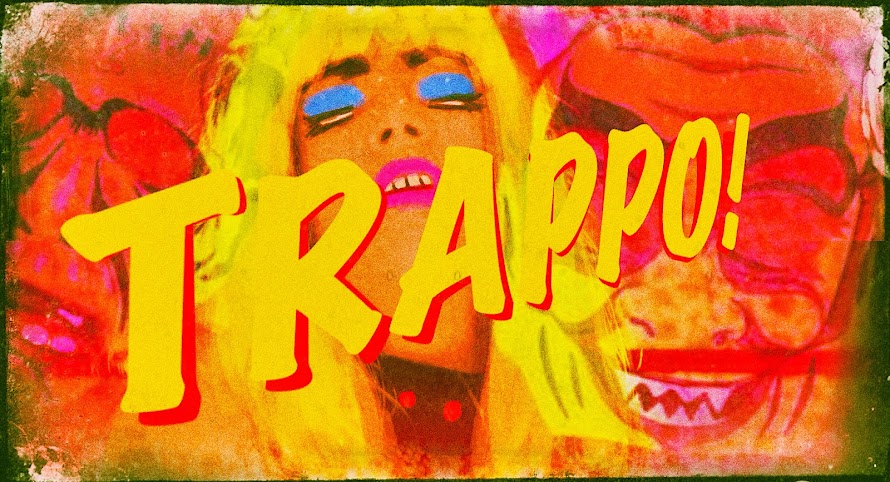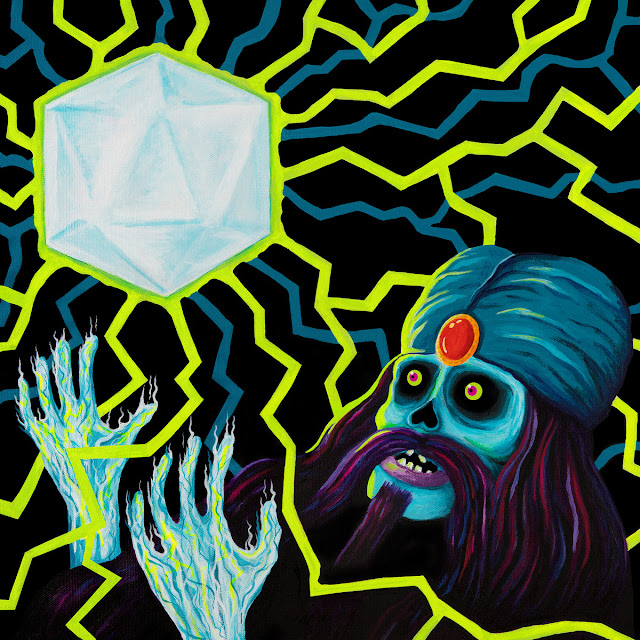Movie Review: Good Madam (2021)
(disclosure: an advance screener of the film was provided for review purposes)
Good Madam, the latest feature from accomplished filmmaker Jenna Cato Bass, tells an unsettling story steeped in the culture of racial dysfunction and inequality within South Africa, more specifically in the affluent Caucasian-dominated Cape Town suburb of Constantia, where diligent Mavis (Nosipho Mtebe) works night and day caring for ailing white madam Diane (Jennifer Boraine) and her large family estate. Mavis has lived in the estate's comparatively meager servant's quarters for most of her life, raising her employer's children at the expense of her own, older daughter Tsidi (Chumisa Cosa), who spent most of her youth in the impoverished Gugulethu township being raised by her grandmother, and younger son Gcinumzi (Sanda Shandu), who grew up at the estate and was informally adopted by Diane's family, who paid for his education and even took to calling him "Stuart" in a subtly insidious effort to pull the boy further away from his own roots.
After the death of her grandmother, Tsidi is forced to leave the home she's known for most of her life, returning to the estate in Constantia with her own daughter Winnie (Kamvalethu Jonas Raziya) to seek refuge in a place that holds seemingly nothing but bad memories, the outwardly benign house that has dominated her mother's entire life at the expense of everything else, decades spent in the employ of a sickly old woman who may be working her trusted, loyal servant to death. Mavis's daily routine, which consists of such mundane activities as scrubbing the floors, doing the laundry, cooking meals, preparing afternoon tea, etc. is revealed in a series of extreme close-ups with disconcertingly jarring sound design that evokes an effortless sense of weariness and dread, this series of tasks leaving such a heavy burden on the woman's aging shoulders, slowly crushing her under their sheer weight. The hiss of steam from a clothes iron or the droning buzz of a light bulb become unnerving, even startling, as this seemingly prosaic estate house takes on a more sinister quality presented in this manner. And every single time the shrill tinkling of Diane's summoning bell is heard, it creates an almost Pavlovian response of revulsion.
 |
| Photo courtesy AMC Networks |
Director Cato Bass (acting as her own cinematographer) and her brilliant sound team manage to capture a palpable sense of the so-called "banality of evil" with their work in Good Madam, transforming this plain-looking house into a place no viewer would choose to willingly spend their time, and so we immediately empathize with Tsidi, who despises this estate and everything it represents. She's watched this family and their home consume her mother and brother over the decades, to the point that she can no longer relate to Gcinumzi (she refers to him as a "coconut") and would prefer to have nothing to do with her own estranged mother, but circumstances have drawn her back into this wicked web she thought she'd escaped many years prior. The discovery of a private graveyard on the grounds is particularly illuminating (and disturbing) as she notes that generations of black servants are buried next to their employers, with words like "forever" and "eternal" marking their comparatively meager headstones. One fateful night, Tsidi even happens upon her mother still working at her madam's behest, entirely unaware of her worried daughter's presence as she drifts through the house in an apparent fugue state. As time goes on and more eerie revelations come to light, Tsidi worries the hold this house and its "madam" have over her mother may not be entirely natural, and it may already be too late to break this cycle of institutionalized abuse and save her family.
Good Madam is a harrowing, slow burn of a thriller that expertly builds tension as the viewer grows more attached to Tsidi and her estranged mother Mavis, with the pair butting heads just as often as they grow closer together reminiscing over happier times in their past. And the film never presents Mavis in an antagonistic role, which certainly would have been the easy route for a more conventional story to take, with Mavis becoming more outwardly hostile throughout the course of the story a la Jack Torrance in The Shining as the house's grasp on her grows stronger. Instead, Mavis is presented as a victim of a system that tells her this is where she belongs and that she's lucky to have the scraps from her wealthy madam's table. She simply doesn't know of any other way to live, she's been a part of this culture for so long, and the idea of it all ending and having to start over in a world she doesn't understand is terrifying. Within the walls of this house, she's safe, and she's provided for, so long as she earns her keep. But if Tsidi's growing suspicions are correct, her mother's servitude to Diane won't just end with death, and a greater nightmare that might swallow up their whole family might be looming on the horizon.
 |
| Photo courtesy AMC Networks |
The story, credited to Cato Bass and the ensemble cast, is well crafted and it feels genuine and unsettling from beginning to end. The dialogue is authentic (almost feeling semi-improvisational at times), the performances are true and effective, and the direction is confident and assured. Good Madam is a beautiful movie to watch, even as it creates a chilling mood that crawls under the skin. And it builds to a disturbing and ultimately satisfying climax that I won't give away here. And as a bonus, the film includes not one, but two genuinely uncomfortable tooth-brushing scenes that might leave a lasting impression on viewers. When was the last time you watched somebody simply brush their teeth in a movie and felt almost overwhelmed with apprehension? Bravo, Jenna Cato Bass, for making me fear the modest toothbrush. That alone earns Good Madam a high recommendation from yours truly.
Luckily, the rest of the movie is pretty good, too. -Dustin Bacon
 |
| Photo courtesy AMC Networks |
(Good Madam premieres on SHUDDER July 14th)
dsgdgdgdgdsgdgdfgdg





Movie sounds boring
ReplyDelete